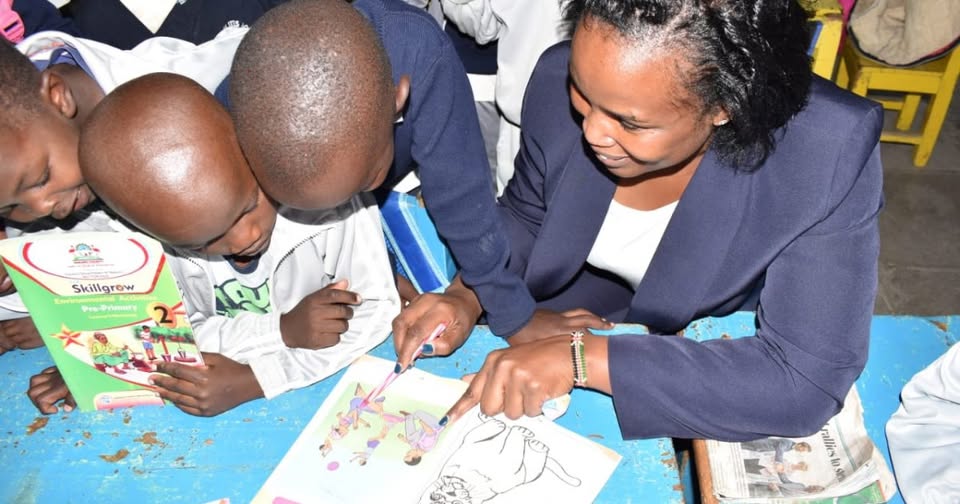By Charles Mogunde
“No discipline seems pleasant at the time, but painful. Later on, however, it produces a harvest of righteousness and peace for those who have been trained by it.” Hebrews 12:11.
Discipline is defined by Oxford as training someone to obey rules or a code of behavior using punishment to correct disobedience. This implies that discipline is a painful process that targets to control or regulate undesirable behavior. Punishment isn’t necessarily an evil however painful it is.
Punishment is reserved to all humans (regardless of age) who disobey rules, regulations and policies. Punishment can be in form of inflicting physical or mental pain or withdrawal of favorable conditions and incentives.
Punishment started at the beginning of the world when God punished Adam and Eve for their disobedience. Adam and Eve were ejected from a blissful life at the Garden of Eden and death struck generations up to date.
Mortal man inherited the indiscipline nature which must be brought under control continually. Some aspects of indiscipline are severe and require immediate control. Immunity to punishment is impossible. A society cannot be governed without rules and regulations else it is a doomed community. For rules and regulations to be obeyed, there must be legitimate correctional systems in place to mete out reasonable and fair punishments.
Who is a disciplined person?
A disciplined person obeys the rules as a matter of conscience and not because of fear of possible punishment. A grown up who received discipline well has the right conscience. However, children aren’t endowed with a mature conscience to make correct choices. They need close attention and corrections.
Proverbs 29:15 states that: “A rod and a reprimand impart wisdom; a child left un-disciplined disgraces his mother”.
Stubborn and rebellious children who do not obey their fathers and mothers should be disciplined by a rod because the rod cannot kill a child. Proverbs 23:13 says that “Do not withhold discipline from a child; if you punish them with the rod, they will not die”.
Every society requires rules and regulations to maintain peace and harmony which are essential features of development and prosperity. Those who intentionally want to continually disobey laws need rebuke, reprimand and punishment as a last resort.
Do we need correctional procedures in our basic education?
There should be a laid down protocol to establish standards for giving reasonable punitive measures to facilitate effective compliance to established rules and laws in our schools.Rules prohibiting fighting, using vulgar language, violence, telling lies and stealing should be well spelt to pupils/students.
Disobedience should result to instant or delayed corrections. Repeated disobedience should be reprimanded or punished. Discipline should start from home and proceed to schools and the society.
Teachers and school administrators have a double role of teaching syllabus content as well as controlling the bad behavior of all groups of students. Control of youths in classrooms, hostels, kitchen and playgrounds is not a mean task. Given that teachers spend most of their time with children, they need to be protected by the law against unreasonable prosecutions while enforcing compliance to rules in schools.
Discipline should be free of violence
“Corporal punishment administered in a reasonable manner…by a teacher, assistant teacher, principal or assistant principal shouldn’t constitute violence, negligence or child abuse (Mississippi Code, 2013).
Objects to administer corporal punishment should be standardized. Teachers handling discipline cases should be trained on how to handle indiscipline in schools.
Violent and uncontrolled punching, choking, pushing, throwing, pinching, squeezing and whipping that uses physical violence with the intention of causing physical fatal harm is not required.
All stakeholders must establish acceptable forms of punishment: Lawmakers, parents associations, teachers and school administrators should take the lead in formulating the right procedures for controlling bad behavior in pupils.
Why is discipline important for our children?
A study done by Were 2006 established that discipline exposes students to the art of self- control and therefore minimizes social chaos.
The study emphasizes that discipline enables children to handle challenges and obligations and equips children with personal strength needed to meet the demands imposed on them.
Discipline in a school, (Onderi and Odera of Bondo University) creates an orderly atmosphere in which meaningful achievement of learning can take place. Discipline is a central pillar in behavioral reforms.
Is discipline status in our schools wanting?
The answer is affirmative. We have witnessed schools going up in flames, students killing one another while others are maiming their teachers indiscriminately. Unruly students are a reflection of moral decay of a society.
Teachers and parents should take the central role of using a mix of corrective measures to shape the character of young generation for a peaceful future society. Poor parenting is breeding poorly disciplined children to schools.
Let us redefine the school constitution to spell particular reasonable punitive measures for every outright violation of rules. Let there be fairness in administering the rod as well as campaign on positive parenting to avert anarchy in our training centers.
Mogunde Charles, teacher and a parent
mogundecharles@gmail.com






